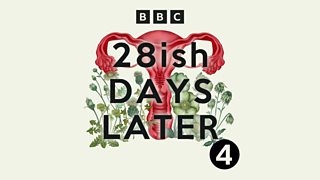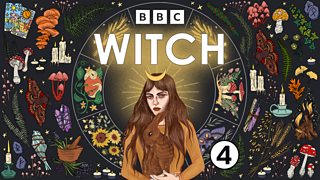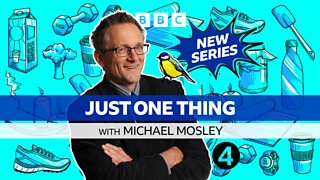Six extraordinary facts about pregnancy
It’s one of the few things we all have in common: being born. But how much do we know about those first bloomings of our own life? When egg met sperm, cells multiplied and – nourished by a brand-new organ built from scratch by our mother’s body – formed into a tiny little human, floating in fluid.
In this fascinating new series from �鶹������ҳ��� Radio 4, India Rakusen looks at the beginnings of life and tells the story of a child from fertilisation, through pregnancy, and up until their first birthday through the lens of society, history, and science.
Here are six astounding facts about pregnancy that we learned from Child.

1. The placenta nourishes, produces hormones, blocks toxins and neutralises viruses
When a fertilised egg becomes an embryo, the outside layer of cells will go on to form the placenta – an organ, grown to order, to nourish and protect the baby. The cells that form the placenta are called trophoblast cells; “tropho” is Ancient Greek and means “to feed”. And that’s exactly what this amazing organ will do – it will feed a very hungry embryo.
The placenta can process toxins or return them to the mother, and many bacteria and viruses can be neutralised before they lead to an infection.
But there are numerous ways in which the placenta is essential for a baby to survive.
As the foetus grows over the next weeks and months, the placenta plays the part of many of the major organs. As well as delivering all the nutrients needed to grow, it’s the site of gas exchange – taking away carbon dioxide and delivering oxygen. It also produces the vast quantities of oestrogen and progesterone needed to maintain the pregnancy. And as well as nourishing the baby, the placenta protects. It can process toxins or return them to the mother, and many bacteria and viruses can be neutralised before they lead to an infection.
2. Before modern medicine, the “quickening” played a crucial role in confirming a pregnancy
“Quickening” is from the Old English and means, “to bring to life; to vivify”. It’s the word given to the sensation of feeling your baby move for the first time, from around 16 weeks into a pregnancy (sometimes earlier; sometimes later). The quickening is felt differently by different people – sometimes as flutters, bubbles, or butterflies – but most agree that the moment is unforgettable.
Historian Dr Elinor Cleghorn says, in the days before ultrasound and modern medicine, these foetal movements used to be crucial. “It was, in the 17th century, one of the only ways to determine whether a woman was pregnant,” she says, “and this was the era when male physicians are trying to document, analyse, own, every possible bit of knowledge about pregnancy and birth.”

3. What you eat when you’re pregnant can affect your baby’s likes and dislikes
In a scientific study, pregnant women were given capsules to eat of different flavours, like kale or carrots. 4d scans were then used to observe each foetus’s reaction, 20 minutes later. By this time, the flavour had got into the amniotic fluid, and been inhaled by the foetus through its nose.
It seems what you consume when you’re pregnant really could affect whether or not your baby eats their greens…
“When the mother ate this capsule of bitter vegetables, the foetuses would react with grimacing… as if they didn’t like it,” says developmental psychologist Professor Nadja Reissland. “The foetuses who got the carrot actually smiled – they seemed to be happy.”
When the babies were then three weeks old, they were given carrots and kale to smell. The babies who had experienced bitter kale in the womb then seemed to like it and were smiling at it, but not at carrots, and vice versa. “It was a very, very specific reaction, after birth, where the neonates, at three weeks, would remember the taste they had experienced prenatally,” states Nadja.
It seems what you consume when you’re pregnant really could affect whether or not your baby eats their greens…

4. Trauma you experience during pregnancy can affect not only your baby, but future generations
There is evidence that the effect of trauma during pregnancy can go on to impact multiple generations.
There is evidence that the effect of trauma during pregnancy can go on to impact multiple generations
Graham Music is a child psychotherapist and trauma expert. He explains how pregnant mothers who were starving in Holland in the Second World War – so starving that they had to eat tulips to survive – went on to have babies and children who developed “thrifty metabolism”. This means their bodies would burn less calories and “hang on to weight.”
Not only did these foetuses become children with thrifty metabolism, that also went down one or two further generations. “There is a sense that there is information that we receive at a cellular level which will then effect the next generations and possibly the next generations down,” says Graham.
5. Severe stress in pregnancy can make your baby more predisposed to stress
Stress in pregnancy is normal and it’s ok – cortisol levels are naturally higher during pregnancy. But abnormally high levels from a very anxious or severely depressed mother can then affect the cortisol levels of the baby, which can have huge effects like complications during birth, or the baby being born underweight.
It can also “give a shift to what we call the HPA Axis, which is one of the stress systems in the body,” Graham explains. This “will give rise to a higher disposition for stress, postnatally.” If a baby is going to be born into an environment where there’s a lot of danger or chaos, it makes sense for them to be “ready for it.”
Reassuringly, this isn’t set in stone. If the post-natal environment is different, then you can rebuild aspects of the nervous system. The baby won’t stay so predisposed to stress, says the psychotherapist, and there’ll be a much stronger sense of the world being safe, “deep inside, at cellular level.”
6. Your racial identity and heritage can affect your experience of pregnancy and birth
“Within our society, if you are identified as being of black of Asian race, you are more likely to be exposed to the negative factors that will impact on your health,” states Dr Christine Ekechi, a consultant obstetrician and gynaecologist who advocates for the reduction in gender and racial inequalities in healthcare. This means, amongst other things, you are more likely to be exposed to poor quality housing, which research suggests will mean less access to sunlight and a higher risk of low vitamin D levels. This has a correlation with pregnancy loss and an increased risk of miscarriage.
The solution is not about blanket vitamin D testing, says Christine, but asking why we have a group in our society who have a different experience when it comes to where they live, their access to parks and sunlight and clean air, and what can we do collectively to redress that balance.
“If we do not address the racial hierarchy that we have in our society… which means that certain people will have poorer experiences and poorer outcomes than others, we will never close that gap,” argues the obstetrician.
-
![]()
Child
A new telling of the extraordinary story of where we all begin. Presented by India Rakusen
-
![]()
28ish Days Later
What do you really know about the menstrual cycle? Periods are just the beginning.
-
![]()
Witch
India Rakusen finds out what it means to call yourself a witch today.
-
![]()
Just One Thing - with Michael Mosley
Michael Mosley reveals surprisingly simple tips to improve your health and wellbeing.




